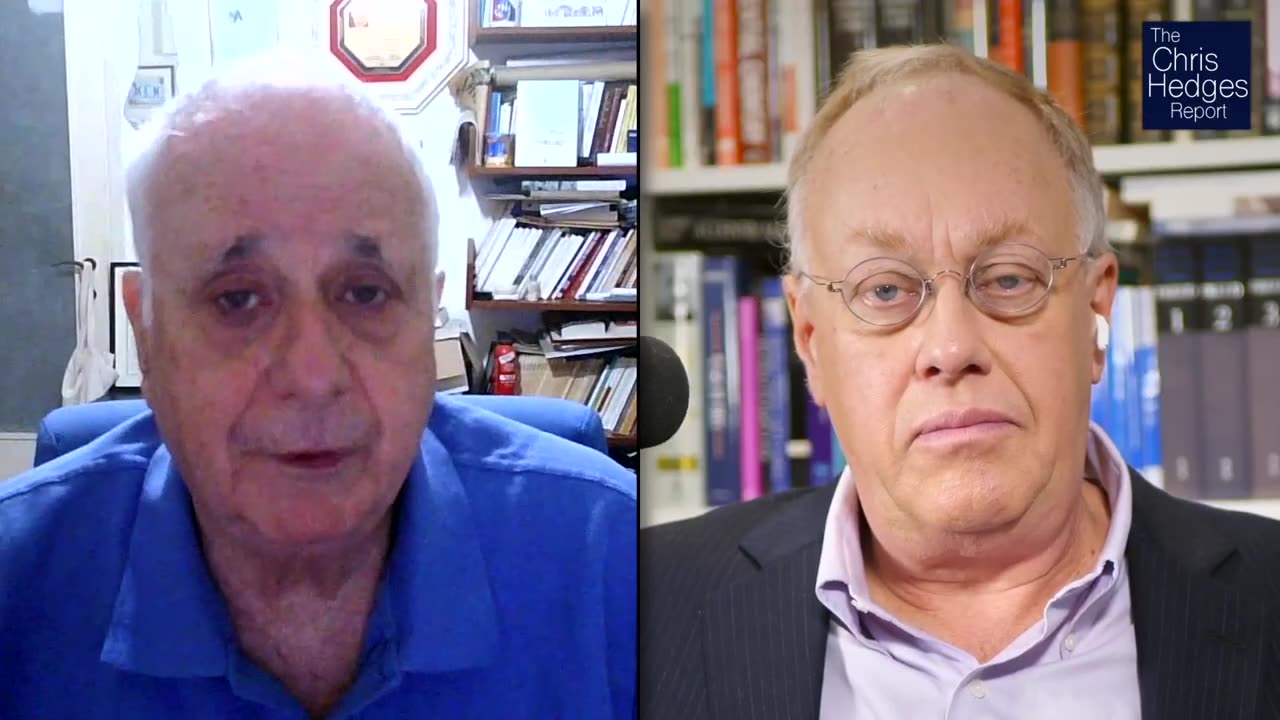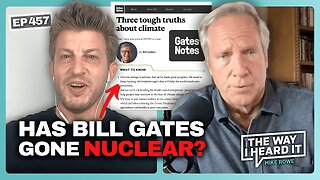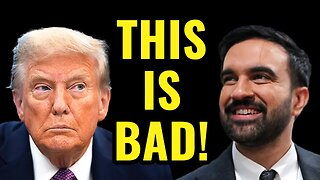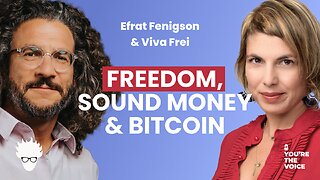Premium Only Content

Ilan Pappé: The Decline of the Zionist Project
In spite of Israel’s military dominance over its regional foes, is the Zionist entity at its most vulnerable point in its short history? And more importantly — will its actions lead to the complete collapse of the Zionist project? Legendary Israeli historian Ilan Pappé provides some answers.
Google AI Overview
According to historian Ilan Pappé, Israel's actions in Gaza have significantly accelerated the decline of the Zionist project, which he believes is entering its "last phase". In recent analyses and his 2025 book, Israel on the Brink, he argues that a combination of factors, including Israel's genocidal policies, international isolation, and internal political fracturing, is making the current path unsustainable.
Key arguments from Ilan Pappé (2024–2025)
Final, more ruthless phase of Zionism
Pappé argues that ideological movements often become more extreme and ambitious before collapsing.
He views the current far-right Israeli government as "neo-Zionist," implementing a more open, racist, and violent form of Zionism. This includes pursuing a more aggressive ethnic cleansing of Palestinians in Gaza and the West Bank.
While previous generations pursued goals incrementally, Pappé contends that the current leadership is pushing to achieve the maximum Zionist agenda swiftly.
Accelerating internal and external pressures
Political fracturing within Israel: Pappé points to growing cracks in Israeli society, internal distrust of state institutions, and the rise of right-wing extremism.
Growing international outrage: Despite the ongoing devastation in Gaza, Pappé feels hopeful that international outrage is helping to collapse the project.
International legal consequences: He has highlighted the importance of actions like South Africa's genocide case at the International Court of Justice (ICJ), noting that the court has taken action against a Western-backed leader for the first time.
Weakening of global alliances: The project has long been sustained by a powerful alliance of imperial and economic interests. Pappé suggests this alliance is weakening, while a competing alliance—focused on global injustices from poverty to climate change—is growing in influence.
Comparing Israel to other historical events
Pappé offers two historical parallels for the potential end of the Zionist project:
South Vietnam model: A total erasure of the state.
South Africa model: The fall of an ideological regime (apartheid) replaced by another.
In his book Israel on the Brink, he suggests that a combination of these two scenarios may unfold sooner than many realize.
Long-term perspective
Pappé acknowledges that the path to a post-Zionist future will not be easy or quick, with the immediate future likely to involve a continuation of genocidal policies.
He emphasizes the long-term context, arguing that events like the October 7, 2023 attack and its aftermath fit into a wider historical process stretching back to 1948 and earlier.
In a 2024 interview, he stated that the question is no longer "whether" the oppression will end, but "when".
In his recent book, Pappé offers a fictional diary set in a "post-Israel Palestine in 2048," providing a hopeful blueprint for decolonization and coexistence.
Which best describes the Zionist movement?
Google AI Overview
What is Zionism? - Hey Alma
The Zionist movement can be best described as a movement for national self-determination for the Jewish people, aiming to create and support a Jewish homeland in the historic Land of Israel. Historically, it was a response to centuries of anti-Semitism and persecution, and the movement grew out of both religious and nationalist aspirations to re-establish a Jewish presence and state in what is now Israel.
Religious and national aspirations: The movement drew on ancient Jewish religious ties to the land and the city of Jerusalem (Zion) while also being a modern political movement inspired by European nationalism.
Response to anti-Semitism: Modern Zionism was fueled by increasing anti-Semitism in late 19th-century Europe, with key figures like Theodor Herzl believing that a Jewish state was necessary for Jewish safety and to end persecution.
Establishment of Israel: The movement culminated in the establishment of the State of Israel in 1948, fulfilling its core goal of a Jewish national home.
Diverse and evolving: Zionism is not monolithic; there are various forms and interpretations, and opinions within the movement range from strong support for the current state to critiques of its policies. Not all Jews are Zionists, and some Jews oppose Zionism on religious or political grounds.
10 hours ago — And more importantly — will its actions lead to the complete collapse of the Zionist project? Legendary Israeli historian Ilan Pappé provides ...
Join the Weekly Video Call
constitutionhelp.com
-
 21:36
21:36
James Corbett: How to End the Fed
4 months agoEisenhower: CIA and NATO Did Regime Change in Iran in the 1950s, the 1970s and 2025
299 -
 1:06:37
1:06:37
Chad Prather
14 hours agoApplying The POWER Of Christ To Your Life!
74.5K27 -
 LIVE
LIVE
LFA TV
14 hours agoLIVE & BREAKING NEWS! | FRIDAY 11/7/25
4,008 watching -
 1:05:59
1:05:59
Crypto Power Hour
15 hours ago $0.17 earnedTop 10 Cryptocurrency Staking Platforms
68.6K10 -
 35:53
35:53
Mike Rowe
1 day agoBreaking Down Bill Gates' 3 Tough Truths About Climate | Alex Epstein #457 | The Way I Heard It
84K51 -
 23:22
23:22
Stephen Gardner
1 day ago🚨BREAKING: Mamdani Won and What Trump EXPOSES About It is SHOCKING!!
60.5K145 -
 1:16:41
1:16:41
Steve-O's Wild Ride! Podcast
22 hours ago $0.07 earnedAdam Ray Absolutely Kills Steve-O | Wild Ride #273
47.5K5 -
 37:22
37:22
efenigson
1 day agoWhat COVID Taught Me About Money & Control - Efrat Fenigson | Ep. 104
41.8K5 -
 1:20:56
1:20:56
Dialogue works
2 days ago $0.58 earnedCol. Larry Wilkerson: No Way Out for Israel - Iran & Russia — NATO’s Worst Fear
64.9K15 -
 10:37
10:37
TheSaltyCracker
21 hours agoMassive Brawl Breaks Out in Bass Pro Shop Over Bathroom
69.1K169